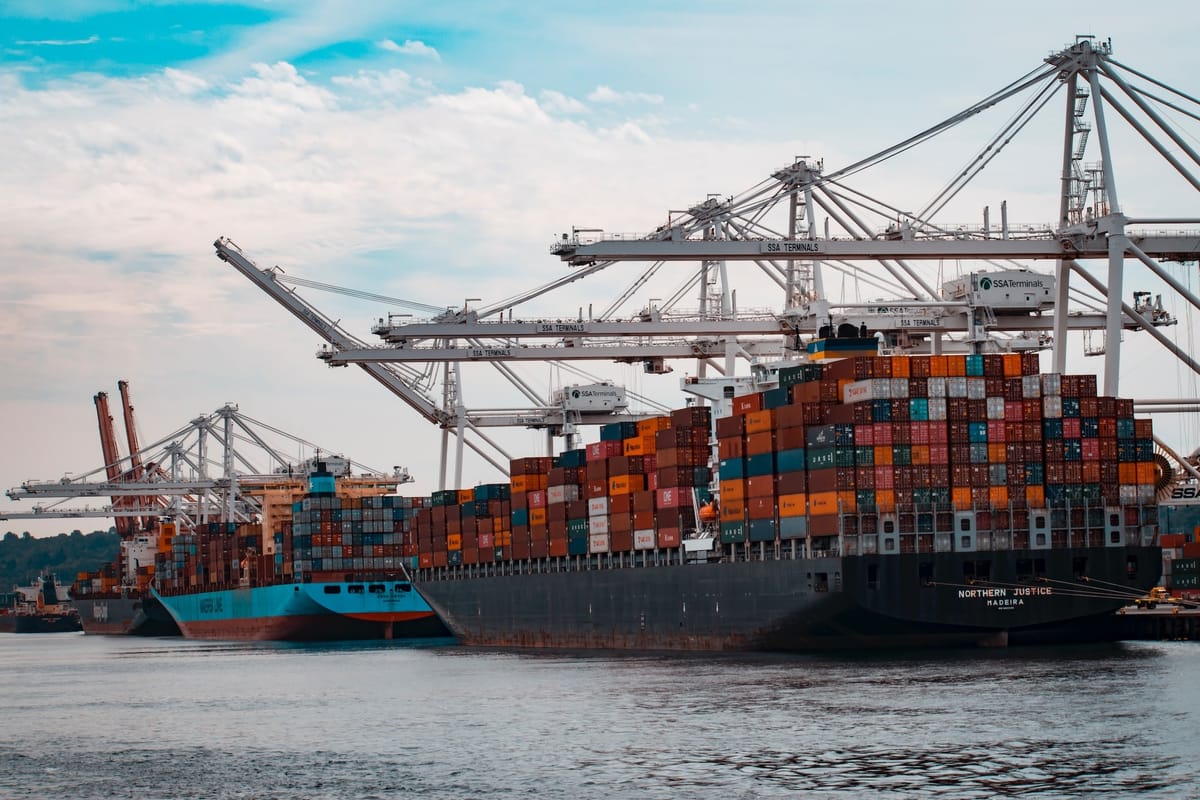Evolving with the Market: AI and ML Unlock New Levels of Market Intelligence in FMCG Supply Chain

In the FMCG sector, sophisticated supply chain management is vital, given the high volume and rapid turnover of products. This area requires effective FMCG logistics, brought about by efficient services and careful consideration of packaging and transportation methods. Managing inventory levels is a key aspect of this process. Here's where Machine Learning (ML) and Artificial Intelligence (AI) come into play:
- Inventory Optimization: ML algorithms analyze historical sales data and market trends to predict future sales, hence optimizing inventory levels. This results in reduced holding costs and preventing stock-outs, ensuring efficient inventory control within the FMCG logistics framework.
- Demand Forecasting: AI and ML enable fine-tuning of demand forecasting accounting for factors like promotional activities, seasonality, and economic indicators. These insights prove valuable in preserving optimal inventory levels in FMCG logistics.
- Automated Processes: AI-enabled systems automate routine tasks such as order processing, which results in efficient and accurate inventory management. These systems also help identify bottlenecks in FMCG logistics processes that can lead to delays or inefficiencies.
- Supply Chain Visibility & Responsiveness: AI-powered systems enhance supply chain visibility, ensuring real-time tracking and tracing of goods. This outcome translates to better oversight of inventory levels and quicker adjustments to changes in demand or supply conditions in FMCG logistics.
- Enhanced Decision Making: AI & ML equip companies with crucial insights for informed decision-making, thus facilitating strategic inventory management. They aid in foreseeing potential pitfalls and strategizing accordingly within the FMCG logistics framework.
AI and ML technologies are not only revolutionizing supply chain management in FMCG but are also making it more resilient, adaptive, and proactive in the dynamic market environment.
AI and ML Revolutionizing FMCG Supply Chains: Optimizing Inventory, Reducing Costs, and Gaining Market Advantage
Introduction:
In today's fiercely competitive FMCG market, characterized by rapid product turnover and high volume, sophisticated supply chain management is no longer an option, it's a necessity. This necessitates efficient FMCG logistics, encompassing optimized services, packaging, transportation, and effective inventory management. Machine Learning (ML) and Artificial Intelligence (AI) are emerging as powerful tools in this space, offering solutions to optimize inventory, forecast demand, automate processes, enhance visibility and responsiveness, and drive strategic decision-making for a resilient and proactive supply chain.
AI and ML: Unlocking New Levels of Efficiency and Market Intelligence
Inventory Optimization: Predicting the Future with Data-Driven Insights
- ML algorithms analyze historical sales data and market trends, predicting future sales with remarkable accuracy, exceeding traditional forecasting methods.
- This data-driven approach leads to optimized inventory levels, minimizing holding costs and eliminating stock-outs, ensuring seamless product availability and customer satisfaction.
- Market intelligence insights gleaned from AI and ML contribute to informed inventory management, allowing companies to predict and adapt to emerging trends and consumer preferences, gaining a vital edge in the market.
Demand Forecasting: Accounting for Every Variable for Accurate Predictions
- AI and ML enable precise demand forecasting, taking into account a vast array of factors such as promotions, seasonality, economic indicators, and even real-time market trends captured through social media and online searches.
- This level of granularity and inclusivity leads to significantly more accurate demand predictions, ensuring optimal inventory levels and reducing the risk of stock-outs and overstocks.
- By leveraging AI and ML, companies can anticipate demand fluctuations and proactively adjust production and distribution strategies, allowing them to capitalize on market opportunities and minimize losses.
Automation: Streamlining Routine Tasks for Increased Efficiency and Cost Savings
- AI-powered systems automate routine tasks such as order processing, boosting efficiency and accuracy in inventory management.
- Automation also helps identify and address bottlenecks in FMCG logistics processes that can lead to delays or inefficiencies.
- This reduced reliance on manual processes not only reduces operational costs, but also frees up human resources to focus on higher-value activities, such as strategic planning and market analysis.
Supply Chain Visibility & Responsiveness: Real-Time Insights for Better Decisions and Market Adaptability
- AI-powered systems provide unprecedented visibility into the supply chain, enabling real-time tracking and tracing of goods, including raw materials, finished products, and even transportation vehicles.
- This enhanced visibility allows for immediate adjustments to changes in demand or supply conditions, ensuring agility and responsiveness in FMCG logistics.
- By leveraging real-time insights, companies can adapt their strategies quickly to market shifts, respond to unforeseen disruptions, and even capitalize on emerging opportunities, granting them a significant competitive advantage.
Enhanced Decision Making: Data-Driven Strategies for Success and Market Leadership
- AI and ML equip companies with crucial insights for informed decision-making, facilitating strategic inventory management, pricing strategies, and market expansion plans.
- They aid in identifying potential pitfalls and proactively developing solutions, ensuring a competitive edge in the dynamic FMCG market.
- By harnessing the power of AI and ML, companies can gain deeper market intelligence, understand consumer behavior, and gain insights into emerging trends, enabling them to make data-driven decisions that propel them to market leadership.
The Impact of AI and ML on FMCG Supply Chain Costs and Market Performance
Understanding the Cost Implications of High Inventory Turnover in FMCG
- Logistics remains a key cost driver for FMCG manufacturers, significantly impacting their bottom line.
- High inventory turnover further amplifies these costs due to specific requirements like expedited shipping, specialized handling, and frequent restocking.
Strategies for Lowering FMCG Shipping Costs and Enhancing Market Reach
- Implementing efficiently organized supply chains and utilizing AI-powered route optimization tools reduces unnecessary complexities and streamlines processes, minimizing transportation costs.
- Bulk shipping aligned with high inventory turnover can help manage costs associated with packaging and distribution, while also enhancing product availability in different market segments.
- Utilizing e-commerce platforms can decrease dependence on physical retailers, potentially lowering overall distribution costs and expanding market reach to a wider audience.
Conclusion:
AI and ML are revolutionizing FMCG supply chain management, offering unprecedented efficiency, cost reduction, and proactive decision-making, ultimately driving market success. Understanding the unique cost implications of high inventory turnover in this sector is crucial for developing effective strategies to optimize logistics and minimize.





